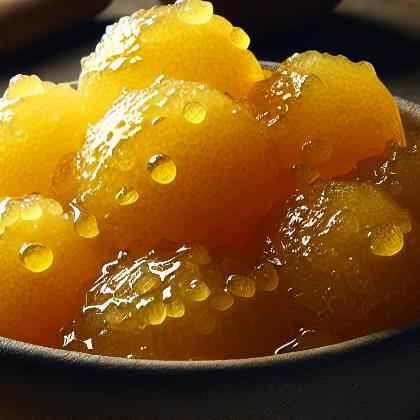Showing results for 'Lemon confit'
close
Lemon Confit

The lemon (Citrus × limon) is a small evergreen tree native to Asia. The tree's ellipsoidal yellow fruit is used for culinary and non-culinary purposes throughout the world, primarily for its juice, though the pulp and rind (zest) are also used in cooking and baking. The juice of the lemon is about 5% to 6% citric acid, which gives lemons a sour taste. The distinctive sour taste of lemon juice makes it a key ingredient in drinks and foods such as lemonade.
Lemon confit Properties:
| Food Property | Type | Description |
|---|---|---|
| Flavor Profile | Sour | Lemon confit has a strong sour flavor due to the high concentration of lemon juice. |
| Texture | Moisture | Lemon confit is typically moist and juicy from being preserved in oil and lemon juice. |
| Nutritional Value | Micronutrients | Lemon confit is rich in vitamin C and other antioxidants. |
| Color | Natural Pigments | Lemon confit has a bright yellow color from the natural pigments in the lemon peel. |
| Aroma | Volatile Compounds | Lemon confit has a strong citrus aroma from the volatile compounds in the lemon rind and juice. |
| Chemical Composition | Acidity/Alkalinity (pH) | Lemon confit has a low pH due to the acidic nature of lemons. |
| Cooking Behavior | Oil Absorption | Lemon confit absorbs oil well due to the porous texture of the lemon peel. |
Food Pairing App - Version 1.2.0
